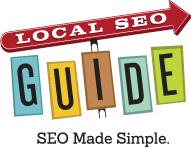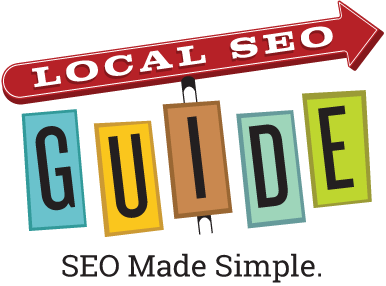This just in; Yelp has removed the internal nofollow tags from their site. If you had read my posts, Yelp SEO Analysis Part I and Yelp SEO Analysis Part II, you might recall that internal nofollows were a big part of their SEO strategy, most likely encouraged by SEOMoz, their SEO consultants, who were big proponents of the tactic as a way to stop the flow of PageRank to undesirable pages. Earlier this year Matt Cutts of Google publicly implied that Google no longer honors internal nofollow tags.
I am not sure how long these have been gone, but if you believe the Compete traffic graph, Yelp’s traffic has been flat for the past couple of months, so they may be looking for ways to juice it via quick SEO fixes.
The thing I have not seen discussed on any SEO blogs is how this change in internal nofollows is being treated by Yahoo & Bing.
Key to the city goes to Jonathan Wegener, the most awesome guy ever, for tipping me off to this earth-shaking news.


8 Response Comments
I’ve been waiting to see some big sites pull the nofollow tag and see what the result is. I’ve pulled them on some sites and left them on others, admittedly small local business type sites, and not really seen a noticeable change one way or the other. Though when I first began to use it as a PR sculpting method, when it was supposedly still working, I did see positive results then. At least as far as I could tell at the time.
I am still not sure what to make of Google’s decision on the removal of nofollow. I can see why they did it. The SEO crowd used it to their own advantage and some may argue it also started to constrict what the web is about. The web is meant to be an interlinked entity. The nofollow tag was starting to become the norm with webmasters afraid to give any precious link juice away.
But I don’t feel a lot of what SEO consultants used it for was necessarily bad. Why shouldn’t a webmaster be able to tell Google what links should and shouldn’t be followed and pass a little extra PR to other pages. I suppose it could be seen as manipulating the algorithm, although you could also say it’s just knowing how to put good site architecture together, no different than how a good development team can increase their sites ability to rank well.
Oh well, I have waffled enough … its interesting to see Youtube still have nofollowed applied throughout their site. I suppose they don’t need to worry about page rank disappearing, they have enough of it 🙂
I guess it makes sense. Google are all about looking at things as they should appear and having internal nofollow tags is manipulating your site.
Thanks,
Sean
The reason behind the nofollow tag being removed by Google was the malicious use for PR sculpting. What they’ve done to prevent this is they count all the links on your page and divide the outgoing PR by those links regardless of nofollow tags.
This means if you have a pagerank of 5, and 5 links with 4 outgoing links using nofollow tags. Before, this would have passed a PR5 link to the one link without nofollow, however now it would pre-calculate each link as worth 1PR and go with that regardless of nofollows.
Pagerank was meant to be a natural measure of strength and less of a manipulated one, this was not the point of the nofollow tag in the first place. The nofollow tag still has a significant impact on large dynamic networks, as it trims the site into a more crawlable structure for spiders.
If Yelp was using nofollow tags to block off useless pages in terms of indexing, and instead direct the crawlers into their directory/high traffic areas – then completely removing these nofollow tags could be a huge mistake.
Regularly indexing content is important for relevant timely searches, especially prevalent in some local markets. Why would you want to remove that? I understand that most webmasters think they’re loosing PR as a result of this switch… but Pagerank is only one, slighly outdated, measure of organic strength.
Any discussion?
Appreicate the input Kris. In my experience Nofollow tags do not block off crawling. The intent is to block the passage of PageRank. That said, anything you do to your site to manipulate robots can have a a number of effects so you could never be 100% sure if you were helping v. hurting by using internal nofollow tags.
Seconding Kris on this one. Nofollow tags have been huge lately albeit it’s only blocking PR, one of the algorithm’s components, from flowing. After having implemented PR sculpting, some marketers have seen improvement, some haven’t but, still, lots followed the trend. I don’t understand this obsession with PR – apart that marketers like metrics and want to be able to grade a page at first sight.
@Stever I too am surprised that more big companies aren’t jumping off the SEO ledge trying to remove the nofollow tags from their website. I think can be funny to watch the SEO industry when a major change comes; and everybody tries to find the next “trick” to get higher rankings (rather than sticking to solid fundamentals).
@ Jacob – I couldn’t agree more than webmasters and marketers should focus most of their energy on building good content rather than risking time engaging in SEO without the proper strategy or skills.
For SEOs that understand the important of search spiders indexing content, namely those managing large networks (like yelp), I don’t understand why you would risk losing traction.
Search the net for “Lynx Viewer” and then use it to display a website like yelp. This is how a spider sees it, they have way to many decisions to make without the use of nofollows and WILL get confused/lost. By using the nofollow tags (not for malicious PR sculpting, but for solid structure) the spiders can be directed to the important content.
While no one can really know for certain right now, I strongly believe that removing the nofollow tags on yelp was a poor decision simply because it makes spiders less efficient on the site. The we’re drilling down on important directory and profile pages.. ones that regularly change and grow.
This is speculation and I’ve been watching cache dates on yelp to see if I can learn the truth. I agree that good content should be the first priority on any site, but for large directories or listing sites I think using the nofollow tag to make it efficient is a good thing.
Cheers